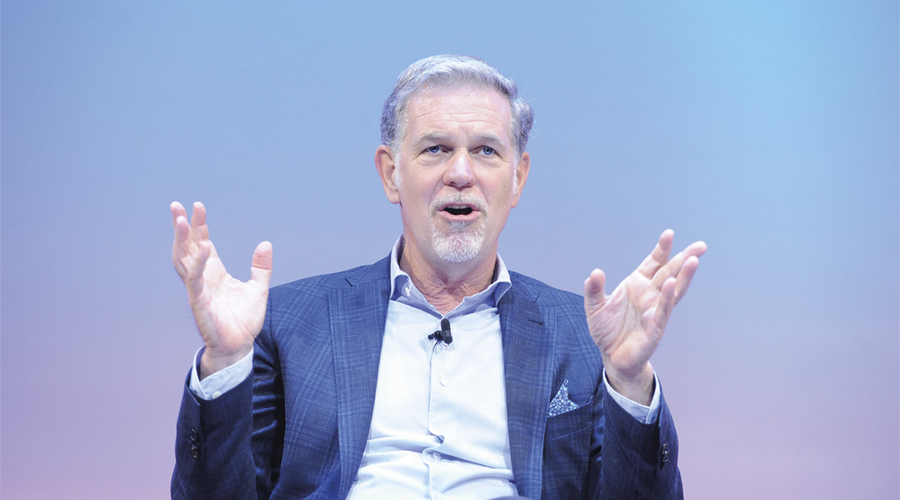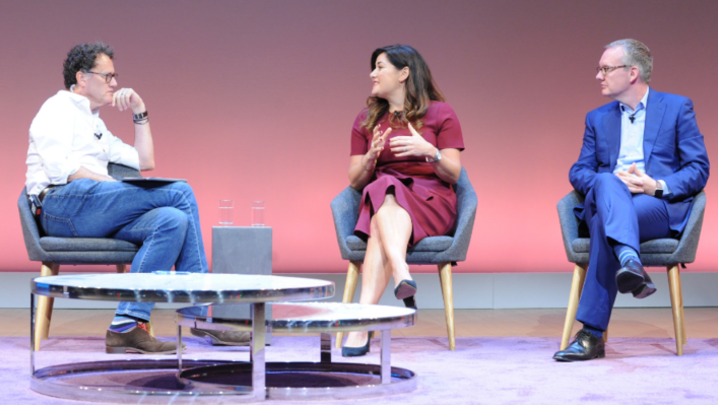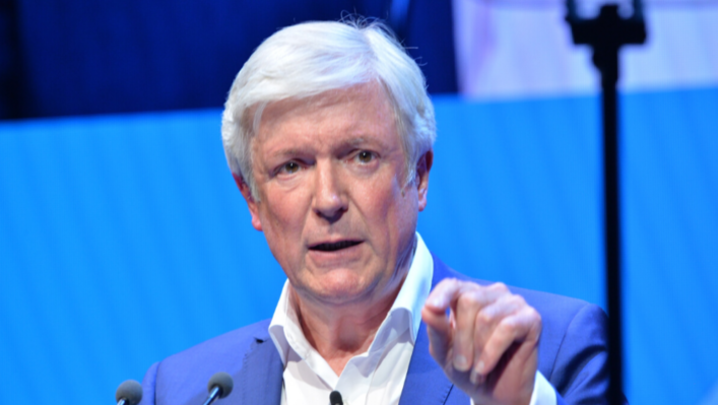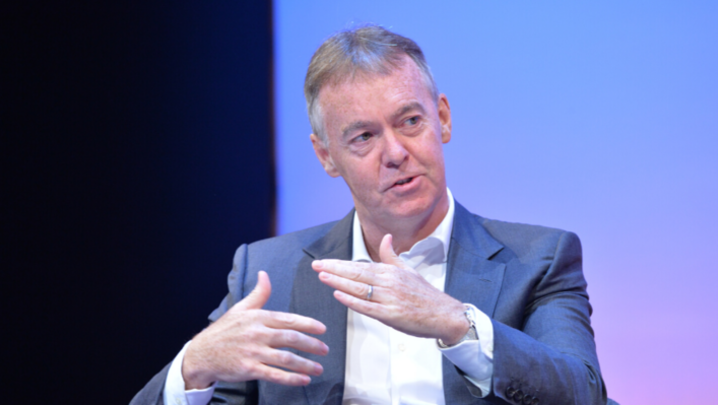Netflix’s CEO explains why he is relaxed as he prepares to face competition from Apple and Disney
At this year’s Steve Hewlett Memorial Lecture, former BBC Director-General Mark Thompson recounted a conversation he had had with Netflix CEO Reed Hastings in 2007, during discussions concerning the launch of the iPlayer. According to Thompson, Hastings told him: “I don’t know why you’re bothering, Mark, you’ll never beat my algorithm. Why not just give us all your content instead?”
More than a decade later, the good news for Hastings is that he was on the money when it came to the power of his algorithm. The company he co-founded is now worth $115bn, with 150 million users worldwide.
The more challenging news is that Netflix no longer has the status of disruptive new kid on the block. After years of enjoying its unique position as leading provider of online TV content, the bingeing behemoth is preparing to face a catalogue of competition. At least eight rival SVoD providers are set to join the race for viewers, including Disney and Apple, whose deep pockets exceed those of Netflix.
If Hastings was feeling flustered, he showed no sign of it as he made his debut appearance at the RTS Cambridge Convention, reflecting calmly on the new TV-scape. “It is fair to say that while we’ve been competing with many people over the last decade, it is a whole new world. Sometimes, you do your best work when you’re really challenged.”
Despite his interviewer Kirsty Wark’s comment concerning so many new fingers in the pie – “If you’re not eating, you’re on the menu” – Hastings said he believed that competition for Netflix viewers lay elsewhere. “It’s in other pursuits, gaming, YouTube, all the things people do to relax. In our most developed countries, we’re about 10% of the time the TV is on.
“What am I scared of? That our employees will focus on competitors. What we have to focus on is how we please our members. It’s up to us to take their money and convert it into shows that they want to watch.”
Thereby lies another challenge. Some big gaps will soon appear in Netflix’s catalogue, with the expiry of licences of some of its most popular shows, including the eternally popular Friends. Still, Hastings appeared unruffled.
“We’ve known this is coming. We’re a little bit surprised it took this long,” he smiled. “We’ve been preparing for this moment since 2012, by building up capacity with movies and TV shows, and we feel good about shifting our consumers’ money. Instead of licensing shows, we’ll be creating new shows.
“The possibilities the internet brings for growing entertainment are phenomenal. We’re producing all over the world.”
“We’ve got seven seasons of Orange Is the New Black, we’ve got Grace and Frankie, we’ve done a Seinfeld deal [for a reported $500m] that won’t start until 2021. There are a lot of great shows that haven’t been announced yet.”
Hastings confirmed his ambitions to follow the success of Oscar-winner Roma with more cinema success. “We started strong in series, now we’re trying to expand into film.”
All of this will mean more choice for consumers, but also a new golden age for producers. Hastings said: “It’s going to be unbelievable in the next couple of years, you’ll get to bid your titles across multiple players to compete with Netflix, then we’ll raise the bid, so it’s going to be fantastic. Some day The Crown will look like a bargain.”
It’s not been cheap for Netflix so far. The company carries an estimated $32bn of debt. Hastings’ bemused reaction? “We’re clearly paying too much for content.”
Or they need more subscribers – up to another 100 million. Will the growth come from the Asian market? “The possibilities the internet brings for growing entertainment are phenomenal. We’re producing all over the world.”
One area firmly in his sights is the UK, where, he said: “What we’re trying to do is have a set of shows that are provocative, diverse, interesting, novel, that we all talk about.”
Hastings admitted that Fleabag is the one show he wished he had on Netflix (he was outbid by Amazon) and was keeping very quiet over any exclusive talent deals in the pipeline.
However, the UK is already Netflix’s biggest centre for production outside the US, and it seemed its boss was unfazed by the prospect of writing some even fatter cheques for our finest talent over the coming year. “We had a good start. We look forward to doing a lot more, a very large increase in how much content is produced here in the UK. This year we spent a little over £400m. We won’t be doubling that, but it’ll be a big increase.”
Hastings praised the UK’s long and strong storytelling tradition, and a powerful and established production infrastructure. He stopped short, though, of seeking to purchase either facilities houses or production companies.
Apart from the company’s long-term lease on Shepperton Studios, he stressed: “We’re really about trying to find great stories, not locations and buildings. We’re not in the acquisition business. We’re trying to find boutique special things from all over the UK, individual talents and companies, with lots of expertise in markets around the world.”
Netflix’s increased presence in the UK brings with it more scrutiny of the company’s approach to the PSBs. Are they friends or foes?
"We’re trying to grow up a little… sharing data with producers about how the shows do"
“A little bit of both,” explained Hastings. “We push people to iPlayer and All 4, but we also make co-productions such as Watership Down and Bodyguard, which increases their budgets.”
He was asked if he felt Netflix had too much power. He responded: “That can be a risk in society [but] we only win about 5% of TV viewing hours. We’re definitely trying to be supportive of the iPlayer becoming popular, the same for All 4.
“Public broadcasters around the world are moving to the internet. The BBC started as a radio station, expanded to TV, and there’s no reason it won’t expand to iPlayer.”
If PSBs are having to evolve, they’re not alone, it seems. After Netflix’s early years of playing poker with rival Blockbuster, the company is becoming more open in its dealings, its audience figures and its spending.
“We’re trying to grow up a little,” said Hastings. “We’re trying to learn, sharing data with producers about how the shows do.
“Top Boy is number one on Netflix today. We’re testing the Top 10 in the UK.” As for sharing data externally, “I’d have Barb or Comscore extend their technology”, he suggested. “Nobody wants to rely on us to provide our figures.”
Other areas for change are dealing with different global cultures and embracing diversity. “Within Europe, there aren’t too many tensions, in Asia we’ve had to make some adjustments, with respect for hierarchy and age. To give direct criticism is hard.”
As for diversity, “It’s a cultural shift, a huge responsibility, and we’ve got more female directors, female writers, and also below the line. We’re very committed there, also on sexual orientation, race and nationality.”
One thing that won’t change soon is Netflix’s original USP: dropping whole series to binge-view in one go. Despite Disney’s planned weekly release schedule and his own company’s occasional experiments with the likes of Bandersnatch, Hastings insisted: “Binge viewing is the essence of what viewers love about Netflix. We’ll be sticking with that. We’re always trying to please our members because that’s how we grow.”
In Session Fourteen, Netflix CEO Reed Hastings was interviewed by Kirsty Wark, journalist, broadcaster and writer. The producer was Alan Clements. Report by Caroline Frost.





